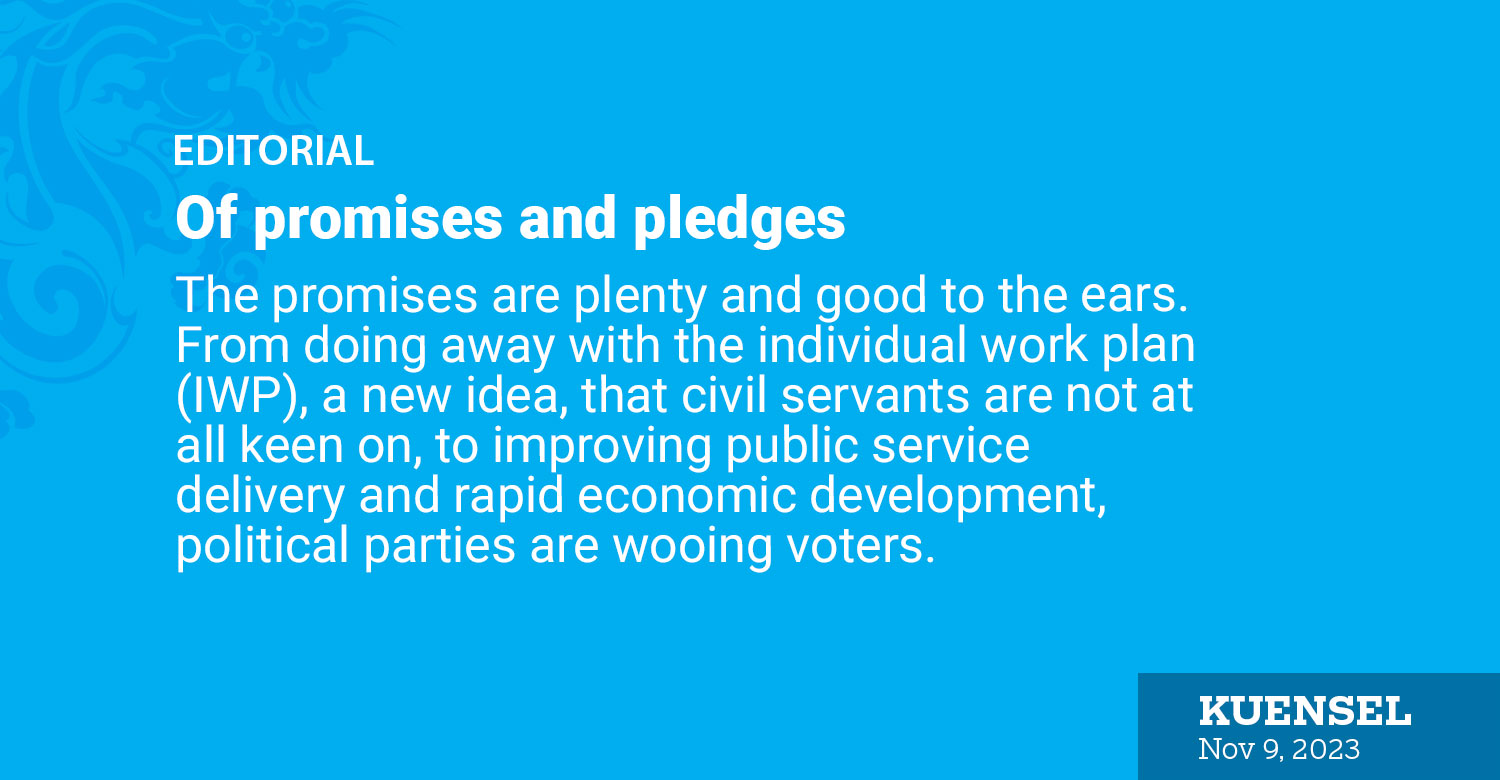The promises are plenty and good to the ears. From doing away with the individual work plan (IWP), a new idea, that civil servants are not at all keen on, to improving public service delivery and rapid economic development, political parties are wooing voters.
Whether the pledges will be fulfilled will depend not on who becomes the government, but on how an elected government can convince the bureaucracy or how realistic the pledges are. The bureaucracy is keeping an eye on what parties are pledging even as they work on finalising the 13th Plan. Some of them are already laughing at, if not mocking what parties are pledging, to get votes.
State-owned enterprises are working on a salary revision following what the elected government boldly or confidently announced, including government funding for the revision of some. Many are feeling cheated. Finance ministry officials were having the last laugh when the media covered what, for instance, the former finance minister said on SOE salary revision. They were right as SOEs found out when working on the revision.
The SOE salary revision is not a national issue. It may pass with some grievances. There are pledges that could confront the vision and aspiration of the nation. For instance, the transformation exercise in the civil service, constitutional offices, the Druk Holdings and Investment companies and SOEs are implemented with huge cost and after careful thinking. Can a political party undo it overnight? It is a tall order.
Elected governments find the bureaucracy as a bottleneck. The government would want to bring changes, and immediately. With the Constitution mandating the independence of the civil service, we will see elected governments and the bureaucracy come into conflict more often than expected.
Some decisions change not because of political pressure, but because of ground reality. Take for example the relaxation of the rule of mandatory six-month exit requirement for foreign workers following three years of stay in the country. The rule is cumbersome and not helpful to the private sector or the business community. It was reasonable and it is changed considering the challenge it posed to private sector growth.
Not many will have the opportunity or the guts to question pledges when they attend the campaign meetings. Should they get it, voters must question the pledges. We have seen in the last 15 years how pledges that appealed to the voters were pushed aside for reasons genuine or for being too good to be true.
If political parties are building castles in the air, as a senior civil servant puts it on some of the pledges, the people must know why and how. The bureaucracy is the machinery to implement the plans and policies of the elected government given the mandate to rule. If the bureaucracy and the elected government are not seeing eye to eye, we should look into it. The people must not suffer because of the conflict between the bureaucracy and the elected government.


